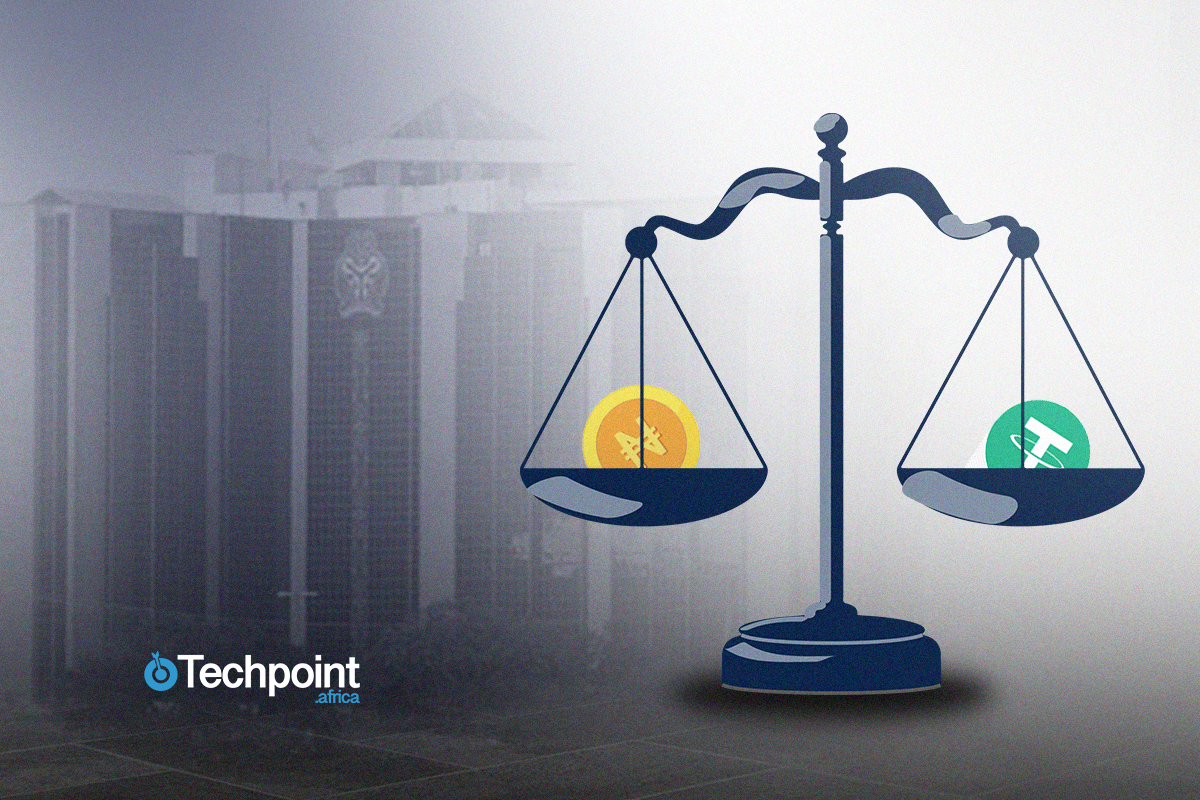Key takeaways
- As the value of the naira declines, reports reveal that Nigerians are turning to stablecoins as a way to hedge against inflation.
- Besides helping to hedge against inflation, they also speed up cross-border transactions.
- However, more people turning to dollar-pegged stablecoins like Tether’s USDT could negatively affect the economy.
A recurring narrative amongst crypto evangelists globally is that crypto/blockchain was made for Africa as it had a young financial system that could easily switch from brick-and-mortar banking or a centralised financial system to a decentralised one.
This article from 2017, for example, suggests that Africa will leapfrog the era of traditional finance into an era of blockchain-powered financial systems like it did from the landline era to the mobile phone era.
While a crypto/blockchain-powered financial system might seem like an upgrade for Africa, it could adversely affect African economies.
These consequences call for regulators to come up with safer ways to utilise the technology.
Although a country like Nigeria has indicated an interest in blockchain technology, with the launch of a CBDC and a blockchain adoption strategy, crypto adoption is outpacing regulations and stablecoins are fast becoming attractive to many Nigerians
Stablecoin adoption in Nigeria
Stablecoins are cryptocurrencies pegged to fiat currencies like the dollar, giving them the same value as the currency they have been pegged to. An example is the dollar-pegged USDT.
Unlike other cryptocurrencies like bitcoin, stablecoins are not volatile, which makes them excellent for savings and even day-to-day transactions.
A report by Chainalysis has revealed that stablecoin adoption in Nigeria is on the rise as most people in the country are using it to edge against inflation.
The report showed that between July 2022 and June 2023 Nigeria received over $56 billion in cryptocurrencies, the highest in Africa, followed by South Africa with $22 billion.
Nigeria also had the highest bitcoin transaction volume in the world between June 2022 and July 2023.
Per Chainalysis, one of the main reasons for this high volume is that many Nigerians and Africans need an alternative store of value. Inflation in most parts of the continent has grown at an alarming rate.
Inflation in Nigeria reached a 30-year high of 28.9% in December 2023, according to Trade Economics, and one of its primary causes is the substantial depreciation of the naira.
This essentially means that Nigerians lose value when they save as naira, making stablecoins a viable option. Moyo Sodipo, Co-founder of Nigerian crypto exchange, Busha, told Chainalysis that while people were interested in bitcoin between 2017 and 2020, the desire for stablecoins is growing.
This is also evident in the value of stablecoins received by Nigerian exchanges over the years compared to bitcoin. In January 2023, they received over $3 billion in stablecoins whereas bitcoins received were less than $1 billion.

Interestingly, stablecoins remain the most exchanged cryptocurrency in sub-Saharan Africa, accounting for more than 40% of exchanged cryptocurrencies in 2022 and 2023.
Cross-border transaction is another reason why Nigerians use stablecoins. While getting access to forex is already difficult, remittances in Nigeria and Africa are the most expensive in the world.
Cross-border transactions with stablecoins are fast and inexpensive. This is probably why Nigeria received over $56 billion in crypto, between July 2022 and June 2023, while remittances for 2022 were $20 billion.
Why stablecoins may be bad for Nigeria
From initiating cross-border transactions in seconds to hedging against inflation, Nigerians may consider stablecoins a life-saver. Nevertheless, increased adoption could do more harm than good in the long run.
In October 2019, the Bank for International Settlements released a report following an investigation into the impact of global stablecoins and it admitted that ” cross-border payments remain slow, expensive and opaque,” and while stablecoins could solve the problem, it poses bigger risks to global financial systems.
Ordered by G7 finance ministers and central bank governors, the report was created by the G7 Working Group on stablecoins to highlight the challenges and prospects of a global stablecoin.
Here are some reasons why stablecoins may be bad for Nigeria.
Weakened monetary policy
Monetary policies can only work when individuals and companies have their balances in naira.
The report noted that where a significant number of people have their balances in a global stablecoin — a stablecoin that is not controlled by the Central Bank of Nigeria (CBN) and also not pegged to the naira — the effect of monetary policies will become weak.
The impact of a stablecoin-dominated economy would be even worse in a country like Nigeria where the naira is not stable.
Reduction in seigniorage revenue
Seigniorage is the revenue the government makes when it prints money. It can also be seen as the difference between the value of the currency and how much it costs to print it.
If it costs ₦2 to print ₦5, this means the government will make a seigniorage of ₦3. According to the G7, countries where citizens predominantly hold stablecoins will experience a loss in seigniorage, a phenomenon that is also seen in countries where cash use has declined due to dollarisation.
Beyond a weak monetary policy and loss of seigniorage, the G7 believes that “no global stablecoin project should begin operation until the legal, regulatory and oversight challenges are adequately addressed.”
Essentially, If stablecoins become globally accepted, countries like Nigeria with weaker currencies will lose control of their domestic currencies and subsequently all monetary policies will cease to be effective.
However, the continuous depreciation of the naira could force more Nigerians to hold stablecoins. And if the naira doesn’t improve, stablecoins could become more popular in the country, and its negative effects could be heightened.










